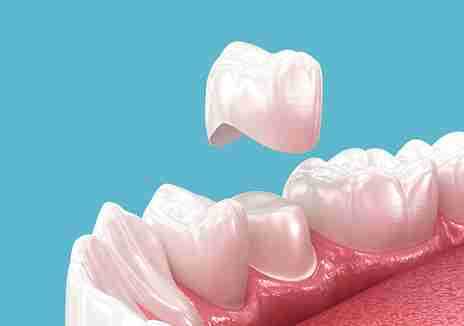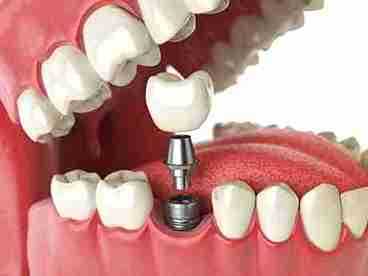Dental implants are widely recognised as one of the most reliable solutions for replacing missing teeth. They offer a permanent, natural-looking solution that restores both function and aesthetics. However, like any medical or dental procedure, they are not entirely free from risks. Understanding why dental implants can fail is essential for anyone considering this treatment.
Dental implants consist of a titanium post surgically placed into the jawbone. Over time, the bone fuses with the implant in a process called osseointegration, creating a stable foundation for crowns, bridges, or dentures. While dental implants generally have a success rate exceeding 95%, failure can occur due to several factors, ranging from patient-related issues to surgical or post-operative complications.
Common Reasons for Dental Implant Failure
There are several reasons why dental implants might fail. Some relate to oral hygiene, while others are linked to general health or lifestyle habits. Being aware of these factors helps patients take preventive measures, especially for those considering a dental implant Bury.
- Poor Oral Hygiene
Failing to maintain proper oral hygiene can lead to peri-implantitis, a condition similar to gum disease. This causes inflammation, infection, and bone loss around the implant, ultimately jeopardising its stability. Regular brushing, flossing, and dental check-ups are vital to prevent such complications. - Insufficient Bone Density
Implants require sufficient healthy bone to anchor properly. In cases of bone loss due to ageing, gum disease, or tooth loss, bone grafting may be necessary before placing an implant. Skipping this step increases the risk of failure. - Smoking and Alcohol Consumption
Smoking restricts blood flow and delays healing, while excessive alcohol intake can affect bone density. Both habits significantly increase the risk of dental implant failure. Studies show that smokers are nearly twice as likely to experience implant complications compared to non-smokers.
Surgical and Technical Factors
Even with excellent oral hygiene, technical or surgical errors can lead to implant failure.
- Poor Implant Placement
Incorrect positioning of the implant can prevent proper osseointegration or place excessive stress on surrounding teeth and bone. This may result in mobility or loss of the implant over time. - Infection During Surgery
While dentists use sterile techniques, infections can occur during or after surgery, particularly if the patient has a weakened immune system. Early detection and treatment are critical to preventing failure. - Overloading the Implant Too Soon
Placing a crown or bridge on an implant before full osseointegration can compromise healing. The implant may loosen or fail if it is subjected to excessive chewing forces too early.
Patient-Related Risk Factors
Certain health conditions and lifestyle habits can increase the risk of implant failure:
- Chronic Health Conditions
Diabetes, osteoporosis, or autoimmune disorders can impair healing and bone integration. Patients with these conditions may require closer monitoring and specialised care during the implant process. - Medications
Some medications, such as bisphosphonates or immunosuppressants, can interfere with bone regeneration and healing. Your dentist must be informed of all medications before starting treatment. - Age and General Health
While age alone is not a barrier, overall health significantly affects recovery. Malnutrition, vitamin deficiencies, or systemic diseases can slow healing and increase failure risk.
How to Minimise the Risk of Implant Failure
- Maintain Excellent Oral Hygiene
Daily brushing, flossing, and professional cleaning help prevent peri-implant infections. Using antimicrobial mouth rinses and attending regular dental check-ups can further reduce risk. - Follow Post-Operative Instructions Carefully
After surgery, patients must follow dietary restrictions, avoid smoking, and limit physical strain. Proper post-operative care supports healing and promotes successful osseointegration. - Choose an Experienced Dental Team
Selecting a skilled implantologist ensures accurate placement, correct planning, and effective follow-up care. Experienced professionals can anticipate complications and adjust treatment to suit individual patient needs.
Factors Contributing to Dental Implant Failure
Factor Type | Examples | Prevention / Mitigation |
Oral Hygiene | Peri-implantitis due to plaque or infection | Maintain excellent oral care and regular check-ups |
Surgical / Technical | Incorrect placement, infection, early loading | Experienced dentist, follow post-op care instructions |
Patient Health Lifestyle | Smoking, chronic illness, and medications affecting bone healing | Address health issues before treatment, quit smoking, and follow medical advice |

Warning Signs of Potential Implant Failure
Recognising early warning signs can prevent permanent loss of a dental implant. Patients should contact their dentist immediately if they experience:
- Persistent Pain or Discomfort
Some soreness is normal after surgery, but ongoing or worsening pain may indicate infection or implant mobility. - Swelling or Bleeding
Extended inflammation, bleeding, or pus around the implant site can signal peri-implantitis or other complications. - Looseness or Mobility
An implant should feel stable once fully healed. Any movement suggests a failure of osseointegration and requires urgent attention. - Changes in Bite or Chewing
Difficulty chewing, changes in bite alignment, or uneven pressure on surrounding teeth may indicate implant issues.
What to Do If an Implant Fails
If a dental implant fails, it does not necessarily mean that you cannot have another one. The course of action largely depends on the underlying cause of the failure. In many cases, the first step involves the careful removal of the failed implant and treatment of any associated infection or bone damage to prepare the site for future procedures. If bone loss contributed to the failure, additional procedures such as bone grafting may be necessary to ensure a stable foundation for a replacement implant.
Once the area has fully healed and any underlying issues have been addressed, a new implant can be placed. Success rates for second implants are generally high when proper planning, care, and follow-up are undertaken, offering patients another opportunity to enjoy the functional and aesthetic benefits of dental implants.
Long-Term Care for Dental Implants
Even after a successful dental implant procedure, proper long-term care is essential to ensure its longevity and overall oral health. Regular dental check-ups, ideally every six months, allow your dentist to monitor the implant, surrounding gums, and bone structure, identifying any early signs of complications. Maintaining excellent oral hygiene remains crucial, with daily brushing, flossing, and the use of interdental brushes or antimicrobial mouthwash to prevent infection.
Lifestyle choices also play a significant role; avoiding smoking and limiting alcohol intake can significantly improve implant stability and healing. Additionally, paying attention to any changes, such as discomfort, swelling, or mobility, ensures that minor issues are addressed promptly, preventing further complications. In case of sudden pain or unexpected issues, contacting an emergency dentist in Bury can provide immediate care and prevent further damage. With consistent care and vigilance, dental implants can last for decades, providing both functional and aesthetic benefits.
Conclusion
Dental implants are highly successful, but failure can occur due to oral hygiene issues, surgical errors, or patient-related risk factors. By maintaining proper care, addressing health conditions, and working with experienced professionals, patients can significantly reduce the likelihood of complications.
For anyone considering a dental implant in Bury, consulting EDB ensures personalised care and expert guidance. If complications arise or sudden pain occurs, reaching out to an emergency dentist in Bury is essential to prevent further problems and protect your dental health.














